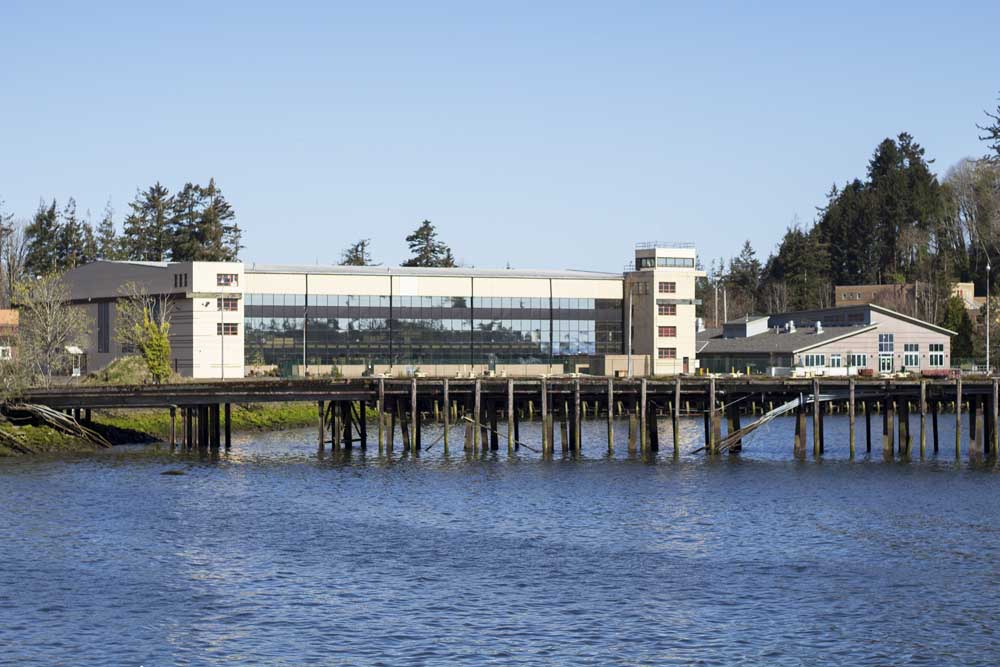Highway 420 opens dispensary at long last
Published 3:48 am Thursday, July 30, 2015

- Evee Geiger is the co-owner of Highway 420, Seaside's first legally operational dispensary since the local moratorium on such facilities was lifted.
SEASIDE — After several years of perseverance, Highway 420 this month became Seaside’s first officially licensed medical marijuana dispensary, potentially opening the door for recreational sales in October.
“We won,” said Steve Geiger, who co-owns the business with his wife, Evee. “We won for the patients, and the patients are now benefiting.”
The couple moved to the area in 2012, when they tried opening a shop but relocated twice because of complaints from neighbors. At that point, Geiger said, they just wanted to have a glass shop.
Eventually, they found their current location on Roosevelt Drive at the intersection with Avenue S. The spot met the criteria to be a medical marijuana dispensary, as per the Oregon Medical Marijuana Program, and the couple applied for that status two years ago.
“It costs a lot of money to become compliant with the state,” Geiger said. “They demand a whole lot of things that are very expensive. It’s not easy. It’s not something you just throw together.”
He described the paperwork to register with the Oregon Health Authority as “a cross between a tax audit and a mortgage agreement.” Everything — video surveillance, security, safes, alarms — has to meet high standards of oversight.
The next hurdles the business encountered were at a local level. In 2013, the state gave municipalities the ability to enact a moratorium of up to one year on licensing medical marijuana dispensaries while they worked to establish “reasonable regulations.”
Not wanting to lose their location on U.S. Highway 101, the Geigers continued to undergo inspections by the Oregon Health Authority and pay an annual licensing fee of $4,000 even during the moratorium.
“It wasn’t easy. We’ve got a very big space and a small store to support it,” Geiger said.
Seaside’s moratorium expired May 1. Even then, though, the Geigers were unable to operate as a dispensary, because the city’s general business license ordinance prohibits activities that violate local, state or federal law. Marijuana is still a schedule I drug at the federal level.
The waiting continued, Geiger said, as the Seaside City Council grappled with adopting provisions to control how, when and where dispensaries could be operated within city limits. Even after an ordinance was adopted in May, it took 30 days for that to go into effect. Highway 420 was then subject to a surprise inspection by the Oregon Health Authority and local law enforcement, as well as background checks for all employees.
“We have been thoroughly searched, investigated, looked at up and down for weeks, months and years before we were finally able to get this,” Geiger said.
He believes the tenacity was worth it and the feedback he has received has confirmed that. Many customers have expressed gratitude that the couple put up a fight and the dispensary is now running, Geiger said.
“That part of it has been very rewarding, because every day people are coming in here and they’re happy,” he said. “That’s what we wanted to achieve and we’ve done it.”
The dispensary carries 20 strains of medical marijuana, as well as oils, medibles and other items. His products come from several sources, including some in the local area, Portland and southern Oregon.
“We’re getting new products all the time,” Geiger said. “When you’re brand new, you can’t just open up and have a store full of stuff. You have to go through the process, and it takes a little bit of time, if you do it legally and correctly.”
When it comes to pricing, he said, the Oregon Health Authority requires dispensaries to derive a formula based on what they pay for their product, their operating costs and what it would take to turn a profit. After calculating costs, Geiger said, they determine what to charge per gram based on what they paid per pound.
Only a few weeks into operating their dispensary, the Geigers are faced with the decision of whether to start selling recreational marijuana in October. Gov. Kate Brown signed a bill into law Tuesday that allows existing dispensaries to sell limited quantities of dried marijuana, seeds and starter plants to all adults beginning Oct. 1.
“When we got into this, we never had an interest in recreational,” Geiger said. “We got into this to help people and we were interested in the medicinal side. But now that things have changed dramatically, the future of medical marijuana is uncertain.”
As a business person who has invested heavily in a medical marijuana dispensary, he added, “we’re really forced now to consider the recreational end, because if we don’t, we won’t survive.”
The new law allows local governments to adopt ordinances that prohibit sales of limited marijuana retail products.
Geiger hopes the city will not choose to do so, especially considering approximately 59 percent of Seaside voters approved of Measure 91 legalizing marijuana last November.
“Maybe it’s time to start looking at marijuana differently than we have in the past, and instead of recoiling from it and thinking it represents something it doesn’t, embrace it and let the money that’s going to come from it, come to our town,” he said.
An uncertain future
Recently Seaside voted to ban medical marijuana dispensaries in the downtown core, and could consider enacting limits on the sale of recreational marijuana. Geiger said there are other factors that make the future uncertain for Highway 420.
It is very expensive and time-consuming for patients to get their medical marijuana card every year. Many will continue to benefit from having a card because taxes for medical marijuana will be significantly less than taxes for recreational marijuana. On the other hand, Geiger said, because people now can grow their own plants and possess marijuana in multiple forms, the medical card “doesn’t have near the value it once did.”
Geiger still seeks answers to the following questions: How many patients will continue to pay to keep their cards? How will the Oregon Liquor Control Commission address medical versus recreational marijuana? What fees and taxes will the state establish?
“All those are questions that are still left to be answered, and as a business person there’s no way you can do any sort of profile or business plan around something that doesn’t exist yet,” Geiger said.





